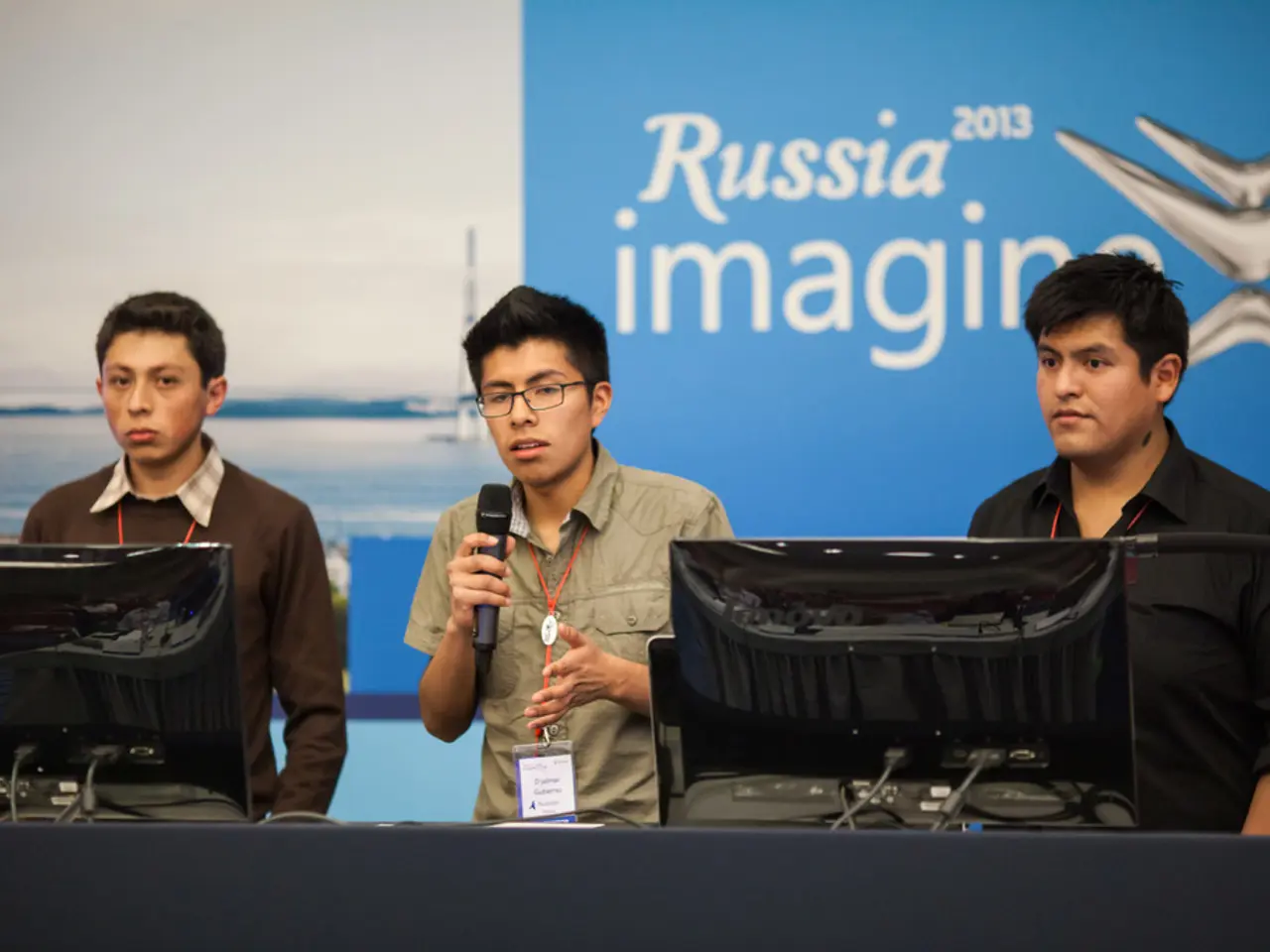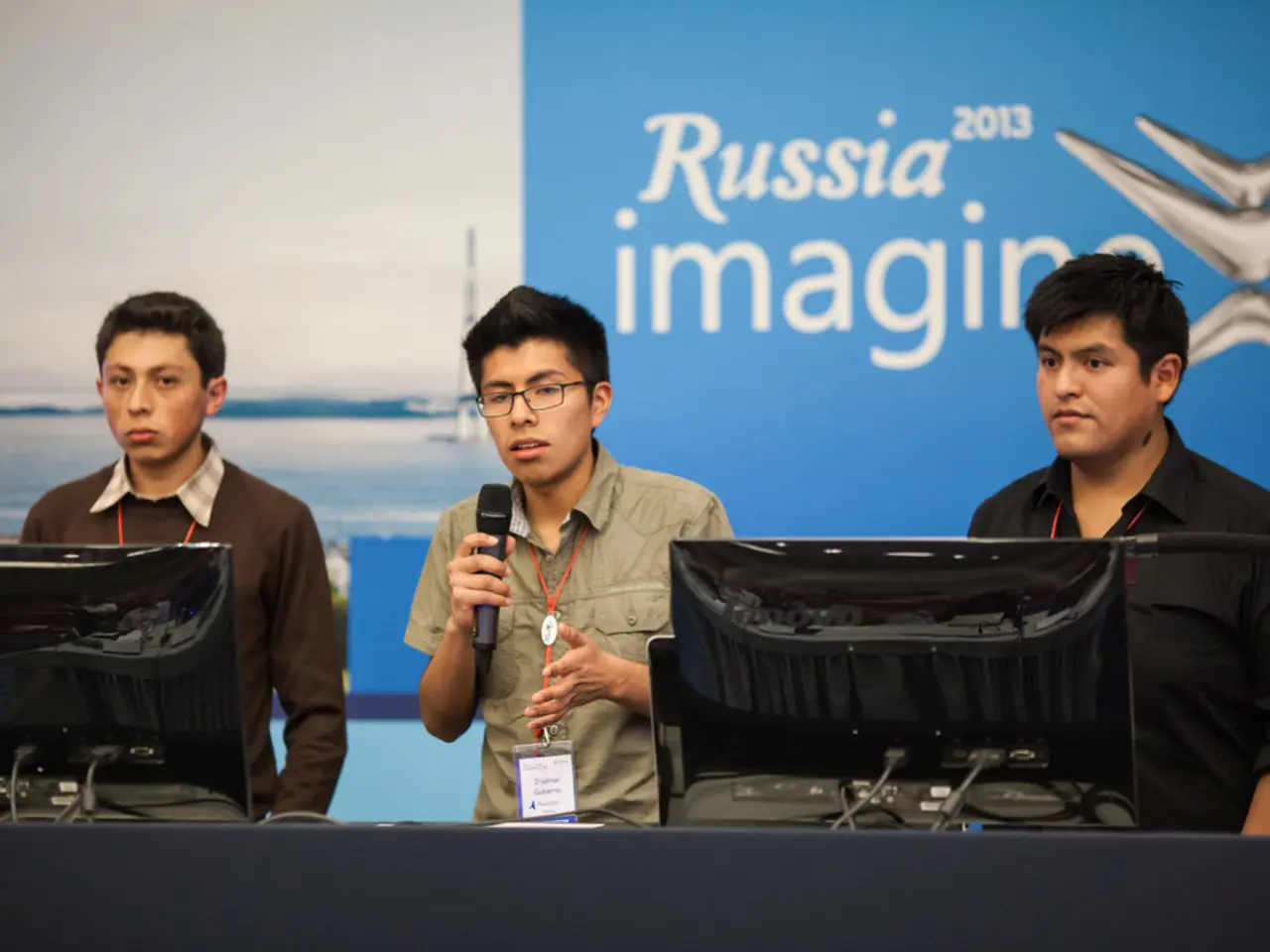India's potential capability to challenge China's dominance in influence-driven alliances such as the Shanghai Cooperation Organization (SCO) located in the Global South.
The Shanghai Cooperation Organisation (SCO) defense ministers' meeting in Qingdao, China, concluded without a joint statement due to disagreements over language on terrorism. This marks the latest instance of the SCO's inability to adopt a joint statement, which often stems from its consensus-based decision-making, requiring all member states to agree on the content.
The meeting in May saw the attendance of Indian Defense Minister Rajnath Singh, marking his first visit to China since the deadly clash between Indian and Chinese troops in the Galwan Valley in 2020. The Galwan Valley clash is a significant event in the relationship between India and China, and the SCO meeting in May was significant due to the ongoing tension between the two nations.
The Indian foreign ministry stated that the reason for the lack of consensus was the joint statement's language on terrorism. India refused to sign the draft document because it did not mention the Pahalgam terrorist attack in April, while highlighting incidents in Pakistan. This disagreement reflects broader tensions between India and China, particularly regarding state-sponsored terrorism and geopolitical alignments within multilateral institutions like the SCO.
The SCO, which includes 10 member states, is an organization that requires consensus in its decision-making. The inability to adopt a joint statement may indicate a broader rift in the organization.
It is worth noting that the SCO and BRICS are organizations that include countries from the Global South. India is a member of both, and the SCO gathering in June highlighted India as a potential contender for leadership of the Global South. India's attendance at the SCO gathering in June marked a significant diplomatic event in the ongoing relationship between India and China.
The June gathering of defense chiefs from the SCO member states took place in Qingdao, in the eastern province of Shandong, China. However, the SCO defense ministers' meeting in June 2021 does not appear to have been reported extensively, and it is possible that similar disagreements over language on terrorism could have occurred, but without specific details, it is difficult to confirm.
References: [1] The Hindu. (2021, June 10). SCO meet: India, China hold talks on border issues, terrorism. The Hindu. https://www.thehindu.com/news/national/india-china-hold-talks-on-border-issues-terrorism-at-sco-meet/article34845139.ece [2] The Economic Times. (2025, June 11). SCO meet concludes without joint statement due to disagreements over terrorism language. The Economic Times. https://economictimes.indiatimes.com/news/international/world-news/sco-meet-concludes-without-joint-statement-due-to-disagreements-over-terrorism-language/articleshow/77987051.cms [3] The Indian Express. (2021, June 11). SCO meet: India, China hold talks on border issues, terrorism. The Indian Express. https://indianexpress.com/article/world/sco-meet-india-china-hold-talks-on-border-issues-terrorism-7857683/ [4] The Diplomat. (2021, June 12). The SCO's Inability to Adopt a Joint Statement: A Reflection of Ongoing Disagreements Within the Organization. The Diplomat. https://thediplomat.com/2021/06/the-scos-inability-to-adopt-a-joint-statement-a-reflection-of-ongoing-disagreements-within-the-organization/
- Regarding the SCO defense ministers' meeting held in June 2021, discussions on border issues and terrorism, like the one in May, might have been overshadowed by disagreements over language on terrorism, much like the previous meeting in Qingdao.
- As the ongoing disagreements over terrorism language in the SCO meetings indicate, diplomacy between member states such as India and China remains complex, with military and political tensions impacting their relations, even within the context of multilateral institutions like the SCO.








